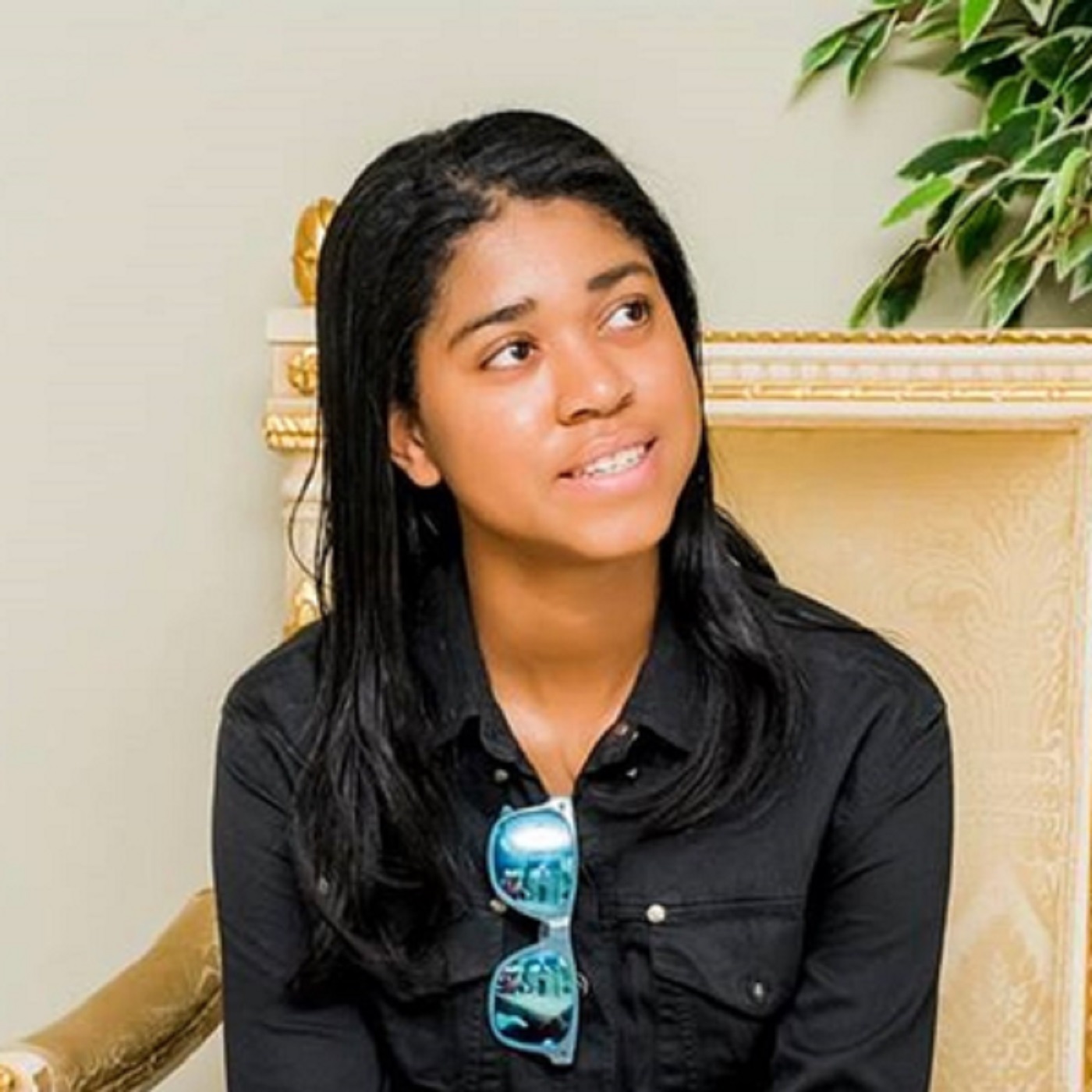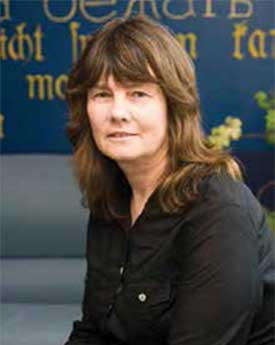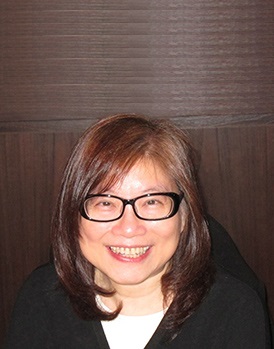Keynote Speakers

Ms Zuriel Oduwole
American Education Advocate and Film Maker,
The Youngest Person Profiled by Forbes
Moderator: Ms Joanna HOTUNG
Citation:
Oduwole, Z. (2020, December 4). Strength vs might – A simple look at gender issues. Keynote speech presented at the International Conference on Gender, Language and Education, The Education University of Hong Kong, Hong Kong. Retrieved from https://www.eduhk.hk/lml/icgle/speakers.php.
About the speaker:
In January 2017, US Secretary of State John Kerry honoured Zuriel Oduwole at the State Department, aged 14. It was for Zuriel’s tireless development work across the globe and advocating for girls’ education especially in Africa, so they can go to school and are not getting married young.
Zuriel’s advocacy saw her profile in Forbes Magazine at the age of 10 in 2013, while ELLE Magazine listed her among 33 women who changed the world in 2015. Zuriel has spoken to 47,300 youths in 18 countries about the power of education and has met one-on-one with over 30 world leaders, including the Presidents of Malta, Ghana, Kenya, Nigeria, Croatia, Tanzania, and Egypt, to share ideas on addressing the world’s youth educational challenges.
She met Mozambique’s President Filipe Nyusi in March 2018, and fifteen months later in July 2019, the country outlawed girl marriage. Zuriel always brings a simple but insightful youthful voice to major development events and causes, around the world.
Strength vs Might – A Simple Look At Gender Issues
I have noticed that when the issue of gender comes up, it is never men who bring it up, or who are championing it, rather, it is always – mostly, and usually women. I somehow don't think it always has to be that way because I really believe that one or two people, can start to change the narrative on any issue, or topic - globally.
Let me share this short story, to show a simple approach to a major issue in the world today. In 2014, Procter & Gamble - the global household and personal care product company launched a campaign back in the US called #LikeAGirl. The whole idea was to try and change the concept of 'doing something like a girl' from a negative connotation to a positive one. I'm sure you all know when people tell a boy 'you run like a girl, its a negative connotation'.
They debuted and showed the campaign during the Superbowl finals game that year – and Superbowl as you all know, is a mostly men's and adrenaline-rush sports day. To the surprise of many, men actually received it very, very well, and many admitted they had used the phrase before – you know, #LikeAGirl, and it was always in a derogatory context.
A year later, they launched another campaign, and it was called “Unstoppable Like A Girl”.
To preserve the authenticity after being told the earlier campaign was produced by women, the producers chose a girl – a preteen girl, an armature film maker, to produce the campaign documentary.
In other words, a multi-billion dollar company run mostly by men, agreed to the hire of a 12 year old girl, to direct a major national campaign and international campaign.
That girl, was me.
One or two people, can truly begin, to change a narrative.
About the moderator:
Ms Joanna HOTUNG is a Member of the Board of Governors of The Women’s Foundation, Founder and CEO of the KG Group, Chairperson Emeritus of Youth Diabetes Action, and Vice-Chairperson at Playright Children’s Play Association.

Dr Jane Sunderland
Department of Linguistics and English Language,
Lancaster University, United Kingdom
Citation:
Sunderland, J. (2020, December 3). Gender and the foreign language classroom. Keynote speech presented at the International Conference on Gender, Language and Education, The Education University of Hong Kong, Hong Kong. Retrieved from https://www.eduhk.hk/lml/icgle/speakers.php.
About the speaker:
Jane Sunderland is an Honorary Reader in Gender and Discourse at Lancaster University, UK. She is particularly interested in gender, sexuality and discourse in the language classroom (classroom interaction, textbooks and textbook use) and in gender and sexuality representation in children's fiction, including the Harry Potter series and books featuring same-sex parents. She has taught in Papua New Guinea, Australia, China, Hong Kong and Poland as well as the UK.
Gender and the Foreign Language Classroom
Gender is relevant to foreign language education, as to all education, in a myriad of ways, and in this talk I consider five characteristic gendered features, all the while being aware of the importance of both context and intersectionality. One characteristically gendered feature is the very ‘feminine’ nature of the EFL teacher community — and of the EFL student body at University level, an imbalance related to previous subject choice, previous academic achievement and motivation (although I warn against the essentialist notion of ‘gender differences’). Another feature is the importance of speaking as a key FL skill, and accordingly, of classroom interaction, pairwork and groupwork: what happens in mixed-sex classrooms, and does it matter? A third is the very human and social nature of the EFL textbook, i.e. how it is multimodally populated in terms of representation of gender and of sexuality. For decades, studies have shown a dominance of male characters; more recently, they have pointed to an absence of non-heterosexual characters. Are classroom participants aware of this and do they comment on it? The global nature of publishing is important here — but what about the fact that many EFL students and teachers do not identify as heterosexual? A fourth is the English language itself, which like all languages is changing: what is said in teaching materials and in class about relatively new forms such as Ms, she or he, and ‘singular they ’, this last being an old issue which has taken on a new importance given the acknowledgement that some of our students are transgender. Fifthly, aside from the demands of the textbook, and given that in principle in the language classroom it should be possible to talk about anything, which gendered topics are covered, which are not - but arguably should be - and which, in given contexts, are officially or unofficially proscribed? In relation to these five characteristic features, I offer a mixture of empirical findings, thoughts and suggestions for research.

Professor Theresa Der-lan Yeh
Department of Foreign Languages and Literatures,
National Taiwan University, Taiwan
About the speaker:
Theresa Der-lan Yeh is Professor of Foreign Languages and Literatures, Convener of the Women’s and Gender Research Program, and Director, Center for Population and Gender Studies at the National Taiwan University. She authored the chapter on gender, language and communication of a widely-adopted textbook in women’s and gender studies in Taiwan. Believing in the intrinsic and outreaching value of gender equality and human rights, Theresa Yeh dedicates her passion to action on these two causes throughout her adulthood. She currently serves as Chair of the Board of Directors, Taipei Women’s Rescue Foundation, an NGO assisting domestic violence survivors and former WWII “comfort women”.
Linguistic Agency in an Age of Anti-Gender Movement: Educational Challenges and Transformations
Our gendered experiences are primarily grounded in languages and communication, even when they are considered gender-neutral. Since the second decade of the new century, we have witnessed waves of discursive adversaries against women and people not conforming to the binary gender norms, online or offline. This anti-gender movement quickly escalates to domestic and international backsliding in rights campaign and educational practices, corroding our initial advances toward gender equality and re-signifying gender into a repulsion. The Gender Equity Education Act of Taiwan, the world’s first comprehensive legal mandate demanding equal education and protection of women and LGBTI+ people on campus, has not been exempted from this world-wide sensation.
This talk explores the recent anti-gender discursive rallies in Taiwan aiming to instill cisnormality into the Act and restore abstinence-only preference into textbooks and pedagogy. In their ideologically coached attempts, the so-called “concerned parents” groups have rhetorationalized women’s and girls’ rights pursuant to the traditional dual, complementary gender roles. Countering the human rights façade of this social atavism, those who strive for the all-inclusive gender equality have exercised linguistic creativity to bring their subjective engagement into existence through constructive choices of lexicon and discourse strategies in education. This agency is not just of psychological property, but a culturally-primed innovation experience.
Abstract submission deadline30 April 2020 31 May 2020
31 July 2020Notification of acceptance (2nd round)Mid-August 2020Registration opens29 June 2020Extended early-bird registration closes31 August 2020 21 September 2020Extended registration for presenters closes21 September 2020Standard registration closes2 November 2020Conference dates2 - 4 December 2020
